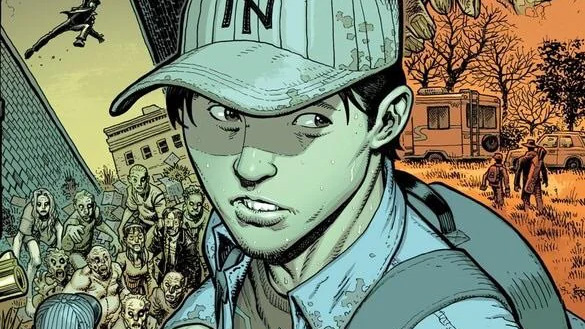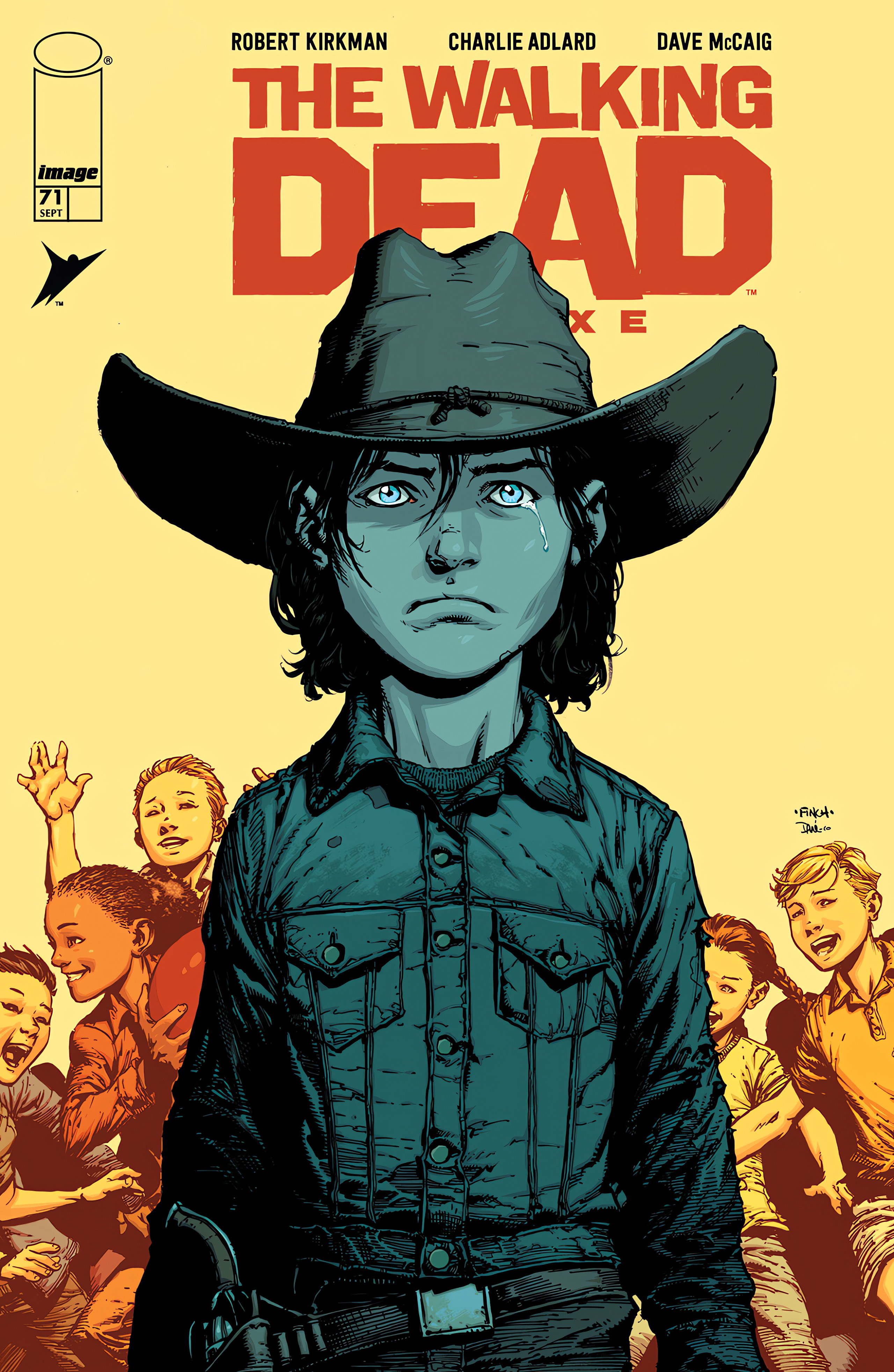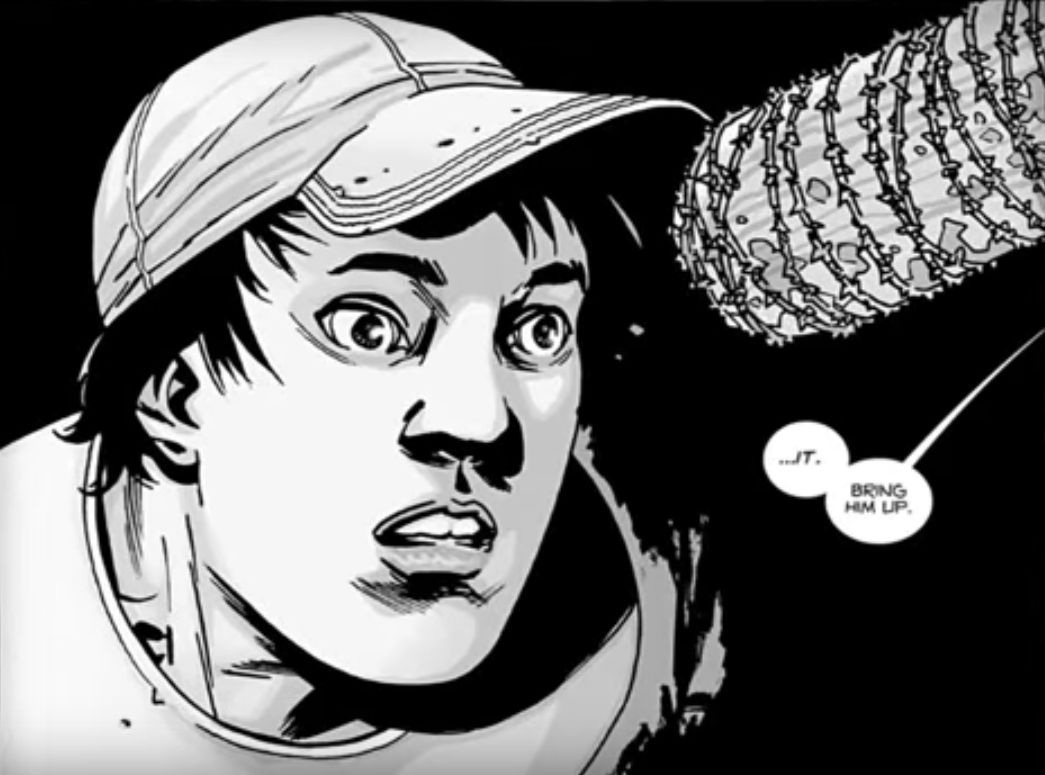Glenn's death in The Walking Dead was almost very different
Creator Robert Kirkman planned to kill the beloved character much earlier...

Robert Kirkman has revealed that The Walking Dead's most infamous death was due to take place much earlier in the comic's long run and in very different circumstances.
The colorized reprint of The Walking Dead Deluxe #71 (cover below) includes a Cutting Room Floor feature, which reveals some of Kirkman's original handwritten notes for the issue. Buried away at the bottom of the page, next to some sketched-out dialogue, is a stark three-word sentence: "Glenn dies next."

This is a reference to the brutal murder of Glenn Rhee, one of the longest-running and most beloved characters in the series. His death at the hands of Negan and his baseball bat Lucille is generally considered one of the landmark moments in both the comic book and the TV adaptation - where it proved extremely divisive.
That was not the original plan, however. Negan was still some ways off at this point and Glenn was intended to meet his fate four issues later in #75, bitten by a walker - a fairly ignominious fate for such a core character.
In fact, Glenn would survive for a further 29 issues before finally dying in #100, in a scene that few readers will ever forget.

In the Cutting Room Floor feature, Kirkman explains why he gave Glenn a temporary reprieve.
"For whatever reason I'd earmarked Glenn for death by this point. He just seemed like the character most ripe, whose death would lead to the most story." That decision clearly troubled him, however. "Glenn would most certainly NOT die next as I would continue to change my mind... again... and again..."
Get the best comic news, insights, opinions, analysis and more!
The Walking Dead Deluxe #71 is out now from Image Comics.
Check out our interview with The Walking Dead creator Robert Kirkman about his new sci-fi adventure series Void Rivals.

Will Salmon is the Streaming Editor for GamesRadar+. He has been writing about film, TV, comics, and music for more than 15 years, which is quite a long time if you stop and think about it. At Future he launched the scary movie magazine Horrorville, relaunched Comic Heroes, and has written for every issue of SFX magazine for well over a decade. His music writing has appeared in The Quietus, MOJO, Electronic Sound, Clash, and loads of other places too.


